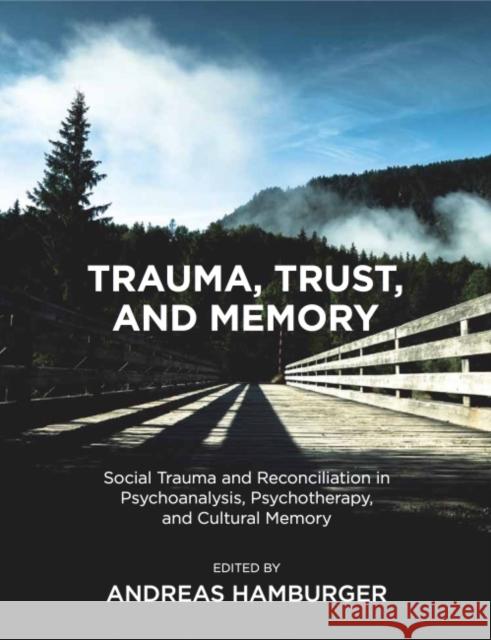Trauma, Trust, and Memory: Social Trauma and Reconciliation in Psychoanalysis, Psychotherapy, and Cultural Memory » książka
Trauma, Trust, and Memory: Social Trauma and Reconciliation in Psychoanalysis, Psychotherapy, and Cultural Memory
ISBN-13: 9781782204473 / Angielski / Miękka / 2018 / 278 str.
Trauma, Trust, and Memory: Social Trauma and Reconciliation in Psychoanalysis, Psychotherapy, and Cultural Memory
ISBN-13: 9781782204473 / Angielski / Miękka / 2018 / 278 str.
(netto: 209,00 VAT: 5%)
Najniższa cena z 30 dni: 203,14
ok. 16-18 dni roboczych.
Darmowa dostawa!
Trauma is one of the most important topics discussed throughout the clinical, social and cultural field. Social traumatization, as we meet it in the aftermath of genocide, war and persecution, is targeted at whole groups and thus affects the individual's immediate holding environment, cutting it off from an important resilience factor; further on, social trauma is implemented in a societal context, thus involving the surrounding society in the traumatic process. Both conditions entail major consequences for the impact and prognosis of the resulting individual posttraumatic disorders as well as for the social and cultural consequences. This volume connects clinical and epidemiological studies on the sequelae of social trauma to reflections from social psychology and the humanities.
Post-war and post-dictatorial societies are in particular marked by the effects of massive, large group traumatization, and if these are not acknowledged, explored, and mourned, the unprocessed cumulative trauma that has become deeply embedded in the collective memory leads to periodical reactivations. To address social trauma, an interdisciplinary approach is required. Psychoanalysis, psychology, and psychiatry describe individual coping and consequences, but society as a whole also has to be studied, where traumatogenic actions such as the persecution of religious, societal, and ethnic groups emerge and continue, and it is society and culture as a whole that has to deal with the historical scars and traces.
Scholars of different disciplines from the Balkan region and Germany have formed a research network to join their efforts in studying the topic of long-time consequences of social traumatization. International supporters as Anna Buchheim, Horst Kachele, Mark Solms, Annette Streeck-Fischer, Mary Target, Svenja Taubner, and Vamik Volkan have lent their hand in shaping this cooperation, and the joint research was conducted not just "on" but "in" the situation of social post-traumatic states--that is, in the very region where just two decades ago a war and persecution took place, and the Western countries who were deeply involved. Young researchers planned, conducted, and shared their studies in multinational, multiethnic, and multidisciplinary groups in close cooperation with senior researchers.











